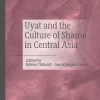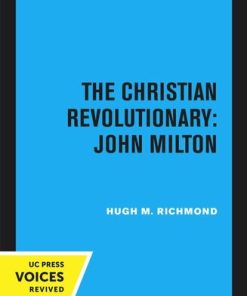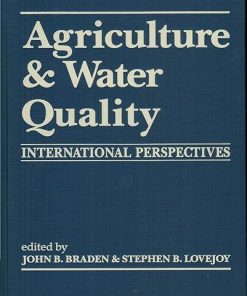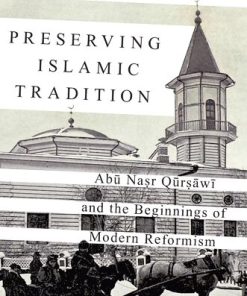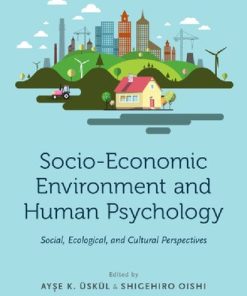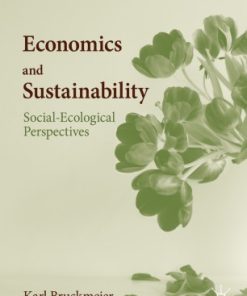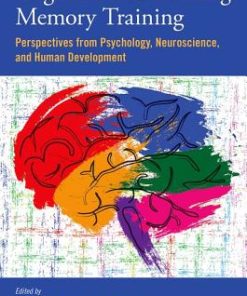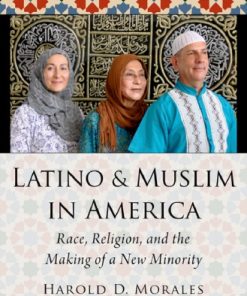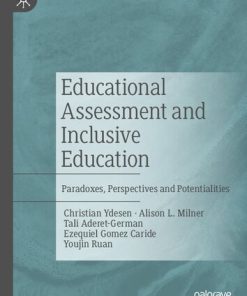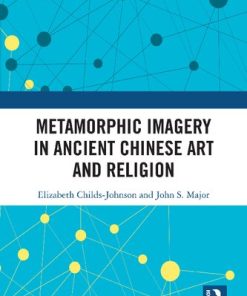(Ebook PDF) Religion and Ecological Crisis Christian and Muslim Perspectives from John B Cobb and Seyyed Hossein Nasr 1st edition by Abu Sayem ISBN 9781000648560 1000648567 full chapters
$50.00 Original price was: $50.00.$25.00Current price is: $25.00.
Religion and Ecological Crisis: Christian and Muslim Perspectives from John B. Cobb and Seyyed Hossein Nasr S. M. Abu Sayem Digital Instant Download
Author(s): S. M. Abu Sayem
ISBN(s): 9781032262383, 1032262389
File Details: PDF, 9.43 MB
Year: 2022
Language: English
(Ebook PDF) Religion and Ecological Crisis Christian and Muslim Perspectives from John B Cobb and Seyyed Hossein Nasr 1st edition by Abu Sayem-Ebook PDF Instant Download/Delivery:9781000648560, 1000648567
Instant download Full Chapter of Religion and Ecological Crisis Christian and Muslim Perspectives from John B Cobb and Seyyed Hossein Nasr 1st edition after payment
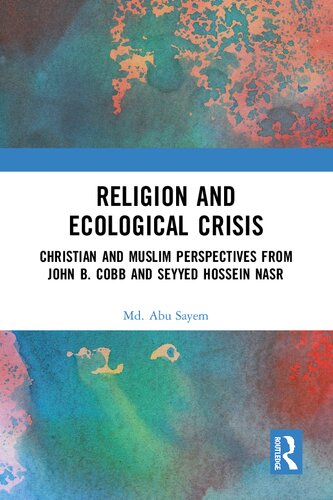
Product details:
ISBN 10:1000648567
ISBN 13:9781000648560
Author: Md. Abu Sayem
Religion and Ecological Crisis delves into the complex relationship between religions and ecology, presenting Christian and Islamic perspectives on ecological issues through the work of John Boswell Cobb and Seyyed Hossein Nasr. It examines how faith traditions of the world see and respond to our current unprecedented climate change issues. This is the first comparative study of Cobb and Nasr’s eco-religious understanding, and explores how their prescriptions can contribute alternatively to techno-scientific initiatives in environmental sustainability. Taking Cobb’s “economism” and Nasr’s “scientism” as the key concepts for surveying the roots of the ecological crisis, the book offers interdisciplinary and interreligious insights into the debates about ecological equilibrium, motivational awareness in human mind and about entanglements between religion and the environment. This will be an insightful resource for policy makers, faith leaders and for academics working in Environmental Studies and Religious Studies.
Table of Contents:
- 1 Introduction: Orientation, Research Methodology and Significances of the Study
- Introduction
- Background and Orientation
- Why Faith Perspectives Are Significant in Addressing Ecological Issues
- John B. Cobb and His Work
- Seyyed Hossein Nasr and His Work
- How Cobb and Nasr Address the Current Environmental Crisis
- Research Objectives
- Research Methods: How this Book will Proceed
- Conceptual Foundations and Clarifications
- Literature Review
- Sources of Research Materials
- Chapter Outlines
- Limitation of the Study
- Significance and Expected Outcomes
- Conclusion
- Notes
- References
- 2 The Relevance of Religions to Ecological Crisis
- Introduction
- Major Ecological Crisis
- The Ecological Crisis and World Religions
- Environment as a Concerning Matter for Faith Communities
- Religions as Promoter for Pro-environmental Stance
- Religions as Partners in Ecological Initiatives and Movements
- Origin and Development of Eco-theological Movements
- A Reciprocal Relationship between Religions and Environmental Movements
- Eco-religious Resources for Environmental Ethics
- Environmental Problems as a Spiritual Crisis of Modern Humans
- Environmental Ethics and Religious Moral Guidelines to the Environment
- Conclusion
- Notes
- References
- 3 John B. Cobb’s Christian Eco-Theological Views and Environmental Issues
- Introduction
- Why Cobb is Interested in Environmental Issues
- Cobb’s Quest for the Reasons of Environmental Degradation
- Cobb’s Process Theology in Eco-Theological Understanding
- Cobb’s Criticism of Mainstream Approaches to Environmental Ethics
- Cobb’s Ecological Model
- A Life-based Metaphor for the Planetary Environment
- Ecological Asceticism
- Living Simply
- The Biospheric Vision
- A New Ethical Life
- Ecological Biology
- Ecojustice
- Revitalizing Traditional Wisdom through New Interpretations
- Prioritizing Sustainability
- Balancing Christianism, Nationalism, and Economism
- Integrating a Modified Christian/Church Role in Ecological Sustainability
- Connecting Process Theology with the Pain and Joy of Nature
- Sustainable Agricultural Systems
- Balancing Power and Politics
- Environmentally-Friendly Village and Urban Life
- Sustainable Development Policy
- Empowering Women
- Renewable Energy, Green Technology, and Environmentally Efficient Transport
- Tolerable Population Size
- Rejecting Economism by Reforming Economic Theories and Functions
- Bioregionalism: Balancing Trade and Commerce by Saving Local Ecosystems
- Why Cobb Went from a Theological Perspective to an Economic and Political Perspective
- A Critical Analysis of Cobb’s Eco-Theological Views and his Ecological Model
- Conclusion
- Notes
- References
- 4 Seyyed Hossein Nasr’s Islamic Eco-Religious Views and the Environmental Crisis
- Introduction
- Why Nasr is Interested in Environmental Issues
- Nasr’s Quest for the Causes of Environmental Degradation
- Nasr’s Criticism of the Scientific Worldview of Nature
- The Eco-religious Understanding of Traditional Wisdom
- God, Nature, and Humanity, and the Relationship Between Them
- Sacred Science
- Traditional Sciences
- Spiritual Feeling for Nature and the Environment
- Religious Spirituality
- Religious Worldviews of Nature
- Challenging and Changing the Modern Scientific Worldview of Nature
- Religious Understandings of the Cosmos/Sacred Cosmology
- Perennial Philosophical Thought
- Pontifical Humans, not Promethean Humans
- Not Anthropocentric but Anthropocosmic and Theo-anthropocosmic
- The God–Human–Earth Hierarchy
- Nature as a Reflection of the Divine
- Nature as Consciousness and a State of Being
- Transcendent Unity of Being
- Spiritual Worldview of Nature
- Traditional Agricultural Systems
- Traditional Ways of Construction
- Toward Less Consumption
- Controlling Human Greed
- Wise Economics
- A Society of Human Beings with Profound Responsibility for Nature
- Interreligious Dialog for Environmental Sustainability
- Insufficiency of Environmental Ethics
- Reinterpreting the Theology of Nature
- Pseudo-Philosophy and Pseudo-Metaphysics
- Practical Suggestions for Muslims Regarding Environmental Sustainability
- Environmental Resources in Islamic Heritage and Scholarship
- Islam as the Cosmic Reality
- Islam as a Religion of Nature
- Taking Care of God’s Creatures through Duties and Responsibilities (amanah)
- God as the Divine Environment
- Nature as the Living Sign of God
- The Natural Environment as a Grace of God
- Nature in the Custody of Humanity
- Laws of Nature as Laws of God
- Not Corrupting the Earth
- Planting as a generous Work
- Literary Works of Past Muslims Who Loved Nature
- Environmentally-Friendly Villages and Agriculture
- Increasing Awareness of the Ecological Crisis in the Muslim Mind
- We Cannot Wait for Divine Intervention
- Why Nasr Relies on Traditional Views of Nature
- A Critical Analysis of Nasr’s Eco-religious Understanding
- Conclusion
- Notes
- References
- 5 Comparison and Appraisal of the Eco-Religious Understandings of John B. Cobb and Seyyed Hossein Nasr
- Introduction
- Some Basic Information About Both Scholars
- How They Relate Religions to Environmental Issues
- How They Used a “Metaphor of Life”
- Cobb and Nasr and Approaches to Environmental Ethics
- Cobb’s Understanding of Value in Environmental Ethics
- Nasr’s Views of Value Approaches to Environmental Ethics
- Cross-analysis of Cobb’s and Nasr’s Value Approaches through Reciprocal Illumination
- The Eco-Religious Understanding in Cobb’s and Nasr’s Interpretations
- Relating Humans with God and Nature
- Connecting “Special Human Dignity” to a Caretaking Mentality
- Human Responsibility toward God’s Creation
- The Sacred Features of Nature
- Sanctity of Life
- Reinterpreting Biblical and Qur’anic Verses Holistically
- Creating a Service-oriented Mentality
- The Insufficiency of Environmental Ethics
- The Environmental Problem as a Spiritual Crisis
- Controlling Greed by Practicing Frugality
- Balancing Population Size
- A Feminine Metaphor for Nature
- Connecting Modern Science and Technology to the Environmental Crisis
- Transforming Science and Technology for Ecological Equilibrium
- Criticizing Governments for Prioritizing Development over Ecological Sustainability
- Supporting a Strong Social Movement on Environmental Issues
- Emphasizing Meaningful Dialog and Cooperation
- Focusing on Global, Regional, and Local Collaboration and Cooperation
- Their Practical Approaches to Environmental Protection and Sustainability
- Planting Trees and Forests
- On Traditional Methods in Agriculture
- Environmentally Friendly Village Life
- Eco-based Construction
- Toward Less Consumption
- Better Economic Policies and Practices
- Reducing Carbon Emissions
- Discouraging Waste and Encouraging Recycling
- Conclusion
- Notes
- References
- 6 Conclusion: Summary of the Study and Recommendations
- Introduction
- A Summary of the Book
- Recommendations
- Conclusion
- References
- Bibliography
- Writings of John B. Cobb, Jr.
- Writings of Seyyed Hossein Nasr
People also search:
religion and ecology
religions and ecology restoring the earth community
religion and environment story project
religion and environmentalism
the ecological crisis a common responsibility
Tags:
Abu Sayem,Religion,Ecological Crisis,Christian,Muslim Perspectives
You may also like…
Sale!
Uncategorized
The Christian Revolutionary John Milton 1st edition by Hugh Richmond 0520313135 9780520313132
Sale!
Sale!
Politics & Philosophy - Anthropology
Sale!
Earth Sciences - The Environment
Sale!
Sale!
Politics & Philosophy - Social Sciences
Sale!
Politics & Philosophy - Social Sciences
Sale!
Sale!



